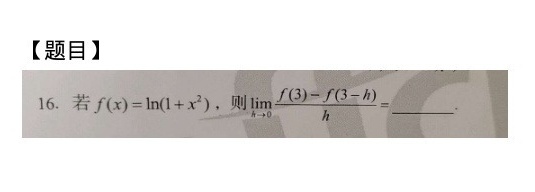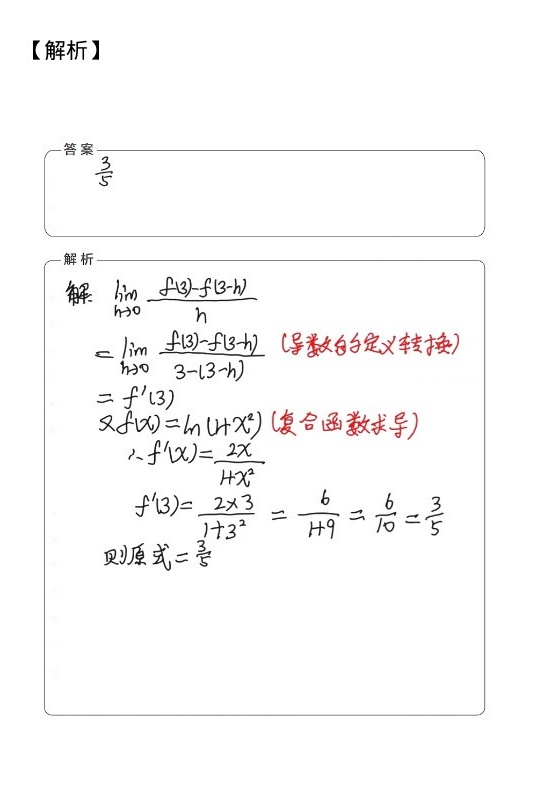题目
16.若 (x)=ln (1+(x)^2), 则 lim _(harrow 0)dfrac (f(3)-f(3-h))(h)= __

题目解答
答案

解析
步骤 1:理解极限表达式
$\lim _{h\rightarrow 0}\dfrac {f(3)-f(3-h)}{h}$ 是函数 $f(x)$ 在 $x=3$ 处的导数的定义。根据导数的定义,$f'(x) = \lim _{h\rightarrow 0}\dfrac {f(x)-f(x-h)}{h}$。
步骤 2:计算导数
$f(x) = \ln (1+x^2)$,我们需要计算 $f'(x)$。根据链式法则,$f'(x) = \dfrac{1}{1+x^2} \cdot 2x = \dfrac{2x}{1+x^2}$。
步骤 3:代入 $x=3$
将 $x=3$ 代入 $f'(x)$,得到 $f'(3) = \dfrac{2 \cdot 3}{1+3^2} = \dfrac{6}{10} = \dfrac{3}{5}$。
$\lim _{h\rightarrow 0}\dfrac {f(3)-f(3-h)}{h}$ 是函数 $f(x)$ 在 $x=3$ 处的导数的定义。根据导数的定义,$f'(x) = \lim _{h\rightarrow 0}\dfrac {f(x)-f(x-h)}{h}$。
步骤 2:计算导数
$f(x) = \ln (1+x^2)$,我们需要计算 $f'(x)$。根据链式法则,$f'(x) = \dfrac{1}{1+x^2} \cdot 2x = \dfrac{2x}{1+x^2}$。
步骤 3:代入 $x=3$
将 $x=3$ 代入 $f'(x)$,得到 $f'(3) = \dfrac{2 \cdot 3}{1+3^2} = \dfrac{6}{10} = \dfrac{3}{5}$。